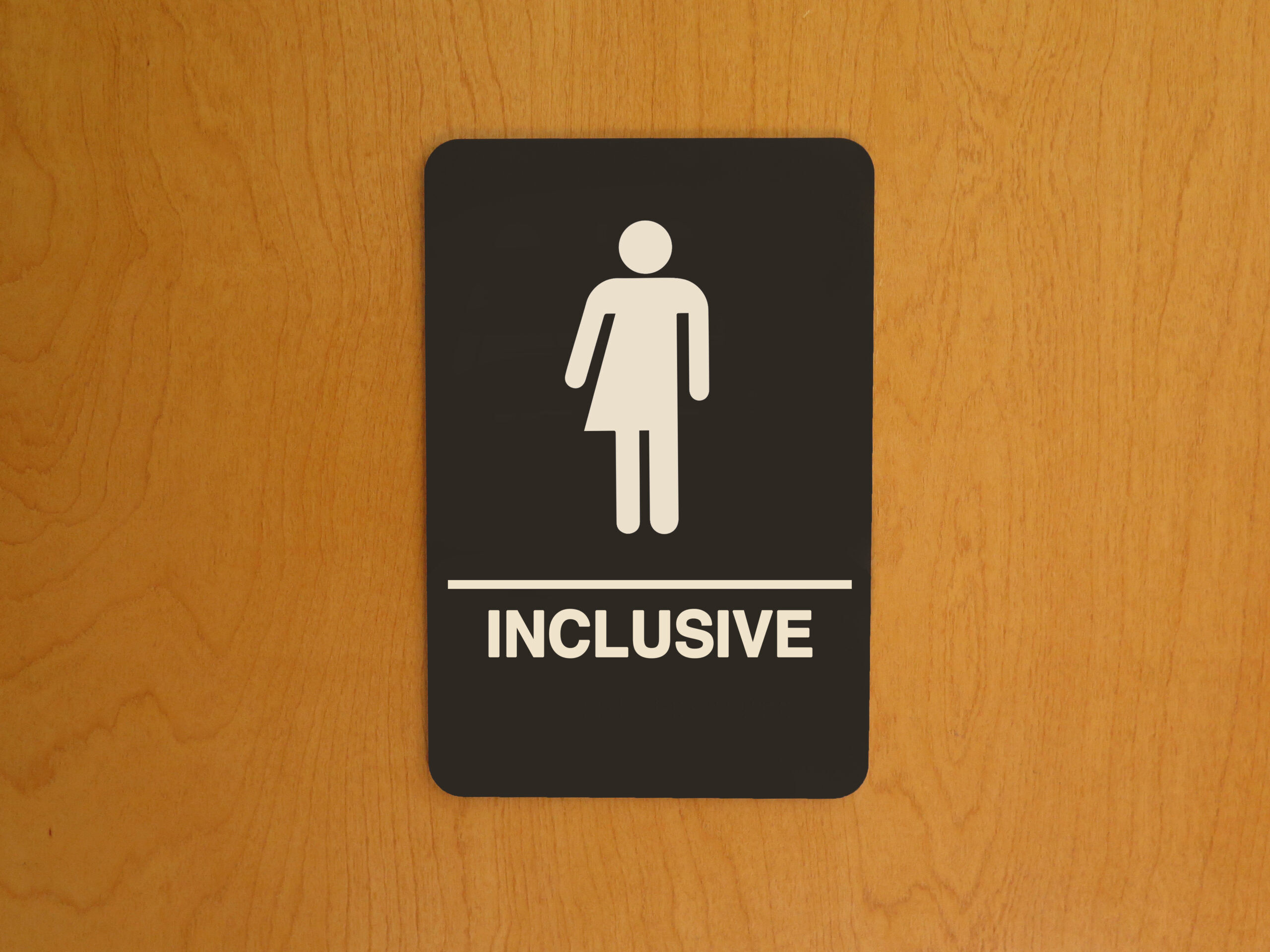The Alan Turing Institute—data science and artificial intelligence center in the UK—is named after the revoluntionary gay computer scientist, and its bathroom policy is carrying on his legacy of queer inclusiveness. A viral photo of the bathroom policy has earned the institute widespread praise for articulating these issues in a clear, nonchalant, and affirmational way.
The sign starts out by asking, “Do you feel like someone is using the ‘wrong’ bathroom?”
My colleague noticed this sign in the bathroom at Alan Turing institute. pic.twitter.com/ijfibhR7yQ
— Prem Gill (Polar Prem) 🦭 (@PolarPrem) August 21, 2022
It goes on to share some simple do’s and don’ts for that situation. “Please don’t: Stare at them, challenge them, insult them, do not purposefully make them feel uncomfortable.
“Instead please: respect their privacy, respect their identity, carry on with your day, protect them from harm.”
The sign explains, “They are using the facilities they feel safe in. Please do not take that right away from them.” It concludes by saying, “Everyone has the right to be here: in this office, in this institute, in this world.”
The virality of the photo provided a moment of levity during a time when trans rights are consistently under assault in politics and the media.
Alan would’ve been proud. 🥹 https://t.co/cbjBVQRRko
— leev ☁︎。₀₅₂₀₁₇∞⁰⁷²⁰²²。 (@circa1895) August 23, 2022
And most importantly
PROTECT THEM FROM HARM https://t.co/WbApsePdm7— STEMLORD (@upulie) August 22, 2022
It’s that easy. #TransRightsAreHumanRights https://t.co/MZ8Tj4aRNZ
— Jamie Stewart 💙 (@jimthevic) August 22, 2022
The Institute’s namesake Alan Turing was a scientist who pioneered the “Turing Machine,” an early model of the computer. As a result, he is widely considered the father of computer science.
During World War II, he worked as a code-breaker, and his ability to decipher intercepted German codes greatly aided the Allied Powers in defeating the Nazis. But far from acknowledging his heroism, his government tried him for breaking anti-homosexuality laws in 1952. He was given a choice between prison or chemical castration, and he chose the latter. Two years later, he died from what was ruled a suicidal poisoning, though evidence has since surfaced that this may not have been the case.
Over half a century later, the UK government has unequivocally acknowledged Turing’s contributions and denounced their previous treatment of him. Prime Minister Gordon Brown issued a formal apology in 2009 and Queen Elizabeth II officially pardoned Turing in 2013.
While gay rights in the UK have seen significant advances since Turing’s time, trans rights are currently witnessing a backlash. TERFdom has seen a particular resurgence in the media. Gender-affirming healthcare through the NHS is inaccessible, despite the NHS’s own policies. And Prime Minister Boris Johnson recently excluded trans people from a ban on anti-LGBTQ+ conversion therapy.
With all that said, the Equality Act of 2010 does allow trans people to use the bathroom that corresponds with their gender identity. And establishments like the Alan Turing Institute are making sure that no one forgets that progress.
Don't forget to share:
Help make sure LGBTQ+ stories are being told...
We can't rely on mainstream media to tell our stories. That's why we don't lock our articles behind a paywall. Will you support our mission with a contribution today?
Cancel anytime · Proudly LGBTQ+ owned and operated
Read More in Impact
The Latest on INTO
Subscribe to get a twice-weekly dose of queer news, updates, and insights from the INTO team.
in Your Inbox













